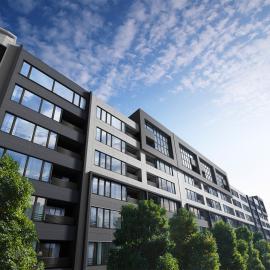Sendai City planning to ban construction on coastal areas, 2400 homes to be affected
September 24, 2011Tsunami,Sendai CityReal Estate News
 Sendai City announced on September 16th that they plan to prohibit any new construction or additions to existing homes in the coastal areas that are at risk of being inundated in a Tsunami over 2 meters high. The City plans to present the proposed reforms to the Diet by the end of this year.
Sendai City announced on September 16th that they plan to prohibit any new construction or additions to existing homes in the coastal areas that are at risk of being inundated in a Tsunami over 2 meters high. The City plans to present the proposed reforms to the Diet by the end of this year.
The City said that a 2-meter or higher tsunami poses a very high risk of washing away homes. As such, approximately 1500 hectares of the city's coastal areas including Miyagino-ku and Wakabayashi-ku has been designated as a disaster risk area. Up to 2,400 homes will be affected by the planned ban on construction or additions, and plans to move residents 1 to 2 kilometers further inland are progressing.Read more
Land prices across Japan continue to fall after the Tohoku disaster
September 24, 2011Japan land valuesLand,Real Estate News,Market Information
 On September 20, the Ministry of Land, Infrastructure, Transport and Tourism (MLIT) published the results of the nationwide land price survey (chika-chosa) as of July 1, 2011. Overall, land values fell by 3.4% from the year before with residential land falling by 3.2% and commercial land values falling by 4.0% over the same period. In 2010, residential land values fell by 3.4% and commercial land fell by 4.6% so the rate of decline has lessened slightly.Read more
On September 20, the Ministry of Land, Infrastructure, Transport and Tourism (MLIT) published the results of the nationwide land price survey (chika-chosa) as of July 1, 2011. Overall, land values fell by 3.4% from the year before with residential land falling by 3.2% and commercial land values falling by 4.0% over the same period. In 2010, residential land values fell by 3.4% and commercial land fell by 4.6% so the rate of decline has lessened slightly.Read more
Chinese citizens can now receive 3-yr multiple entry tourist visas for Japan
September 23, 2011Okinawa,Travel & Tourist Information
 The Ministry of Foreign Affairs of Japan (MOFA) announced that from July, 2011, citizens of mainland China can apply for multiple entry tourist visas to Okinawa Prefecture.
The Ministry of Foreign Affairs of Japan (MOFA) announced that from July, 2011, citizens of mainland China can apply for multiple entry tourist visas to Okinawa Prefecture.
The visa's term of validity is 3 years and the tourist can visit as many times as they like during this period and stay for a maximum of 90 days each visit. The terms require the traveler to arrive in Okinawa and stay for at least one night, after which they are free to travel elsewhere.
This will be a welcome change for Chinese citizens wanting to visit Okinawa and Japan. Up until now, individual tourist visas for Chinese citizens only allowed them toRead more
The demise of security deposits and key money
September 23, 2011Real Estate News,Rental Market,Market Information
Good news for tenants and bad news for landlords in Japan: A change in the traditional transaction customs in the residential and commercial rental market in Japan is underway which is putting more power on the tenants' side.
The various fees usually paid by a tenant such as security deposits (shikikin) and key money (reikin) are decreasing. Japan's declining birth rates, decreasing population, oversupply of housing and the growing awareness of consumer rights have put an end to the era where landlords once held all of the power.Read more
Who said all Japanese apartments lose their value immediately after purchase?
September 21, 2011Japan ApartmentsProperty Purchasing Guide,Real Estate News,Market Information

Real estate marketing and research firm, Attractors Lab, has compiled a list of the apartment developers and the resale value of their apartments 10 years after completion. In top spot was Marubeni Corporation.
The data is based on apartments built in the last 10 years that were listed for sale on the secondary market in 2010. The purchase price when brand new was compared to the asking price when the property was re-listed in 2010. The data only included developers who have built over 30 buildings.Read more
Second-hand apartment prices in Tokyo rise after 3 months but stockpile of unsold units reach highest recorded level
September 19, 2011Real Estate News,Market Information
According to the Real Estate Information Network for East Japan (REINS), the average price of an apartment on the secondary market in greater Tokyo increased for the first time in three months.Read more
TEPCO doubles their real estate sell-off to 200 billion Yen
September 18, 2011TepcoReal Estate News

In order to raise funds to pay compensation for the Fukushima Daiichi Nuclear Power Plant disaster, Tepco are planning to sell approximately 200 billion Yen (2.6 billion USD) of their vast real estate holdings. One of their assets includes their company headquarters in Hibiya in central Tokyo which is expected to sell for 10 billion Yen (130 million USD).
The planned sell-off will include approximately 280 properties including company dormitories and company retreats.Read more
